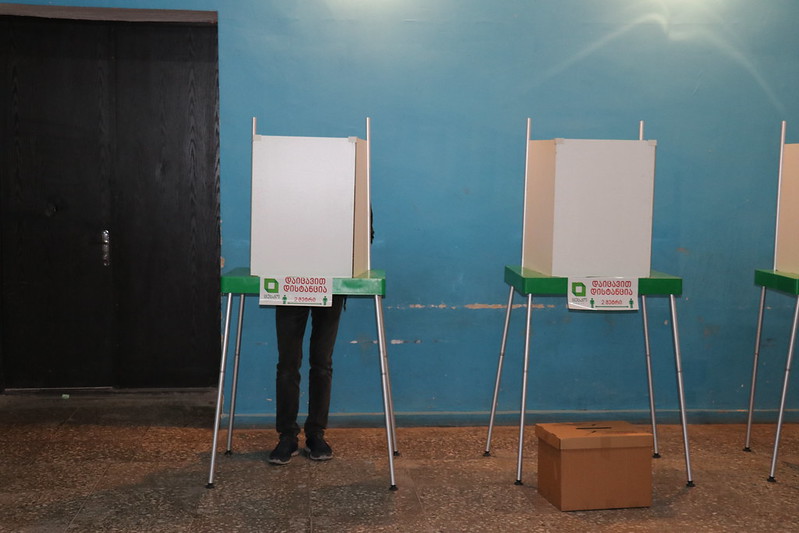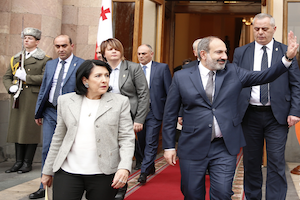Georgian Dream Claims Third Consecutive Victory in Parliamentary Elections
By Natalia Konarzewska
November 16, 2020, the CACI Analyst
For the first time in the country’s history, Georgia’s ruling party has secured a third consecutive term in the parliamentary elections on October 31. Many observers termed the vote pivotal as it was held under the freshly introduced predominantly proportional voting system, expected to break Georgian Dream’s (GD) tight grip on power, and amidst the unprecedented health crisis caused by the coronavirus pandemic. The opposition has refused to accept the results due to a large number of irregularities and pledged to boycott the new convocation of parliament.

"To Light the Lands": Georgia and the Quest for Electrical Security
By Jesse Young
September 8, 2020, the CACI Analyst
Central to Georgia’s post-independence “success story” was the rapid modernization of its electrical system. Once saddled with sclerotic and inefficient infrastructure and plagued by widespread power theft, Georgia now has a modern, reliable grid and scores of new power plants. However, perilous waters lie ahead. As a developing middle-income country committed to both EU and NATO membership, Georgia can offer powerful lessons for what to do (and what not to do) when employing hydropower to fuel economic development.

Emerging Room for Rapport Between Sokhumi Tbilisi
By Emil Avdaliani
June 18, 2020, the CACI Analyst
Georgia’s breakaway region of Abkhazia is undergoing a deep political crisis coupled with troubles in its relationship with Russia. This potentially opens for a rapprochement with the government in Tbilisi and Abkhaz politicians have already come out with some bold statements. Although Abkhazia’s continual dependence on Russian financial and military support will keep the region under the Kremlin’s control, the emerging trends also suggest that tensions between Russia and Abkhazia will continue and grow.

Armenia Seeks Re-Energized Ties with Georgia
By Natalia Konarzewska
April 15, 2020, the CACI Analyst
Armenia’s Prime Minister Nikol Pashinyan visited Georgia on March 3-4 to discuss bilateral relations and held several high-profile meetings with top politicians including his Georgian counterpart Giorgi Gakharia and president Salome Zurabishvili. This is Pashinyan’s third visit to Georgia since he assumed office in 2018, following a peaceful power shift ousting the previous unpopular regime. His government has made a broader effort to reinvigorate ties with Georgia. Despite fundamentally different geopolitical outlooks and various challenges, Tbilisi and Yerevan have maintained good neighborly relations based on political pragmatism. Yet their partnership still has room for improvement.

Geopolitics Doomed Georgia's Anaklia Project, But Can Also Resurrect It
By Emil Avdaliani
March 9, 2020, the CACI Analyst
Georgia’s long-awaited Anaklia project officially ended in January 2020. The country’s internal problems as well as geopolitical competition involving the U.S., China, and Russia doomed the deep-sea port. However, this same geopolitical competition could serve to keep U.S. interests in the project afloat, as Chinese and Russian investments in the port would be problematic for Washington. Moreover, after Georgia’s critical parliamentary elections this year, Tbilisi may become better positioned to support a new concept for constructing Anaklia.



